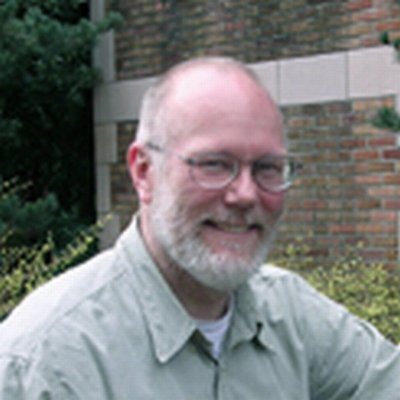The 2009 UW Alumni Association and College of Arts and Sciences History Lecture series will explore a century of changes and challenges that shaped the modern Catholic Church and forever altered the state of world politics.
James Ramon Felak, UW associate professor of history, will deliver this year’s five-part lecture series, titled “The Vatican in the 20th Century: The Popes Confront a Turbulent World,” from 7 to 9 p.m. Tuesdays Jan. 20 and 27, and Feb. 3, 10 and 17, all in 130 Kane.
The first lecture in the series is titled 1914-1939: Benedict XV and Pius XI, and discusses how these two popes dealt with a Europe rife with monumental moral and political choices. Benedict XV (1914-1922) spent his pontificate dealing with what he regarded as an unjust war followed by an unjust peace. Pius XI (1922-1938) saw the rise to power of Mussolini, Stalin and Hitler, along with the Great Depression and the diplomatic and military maneuvering that paved the way for World War II.
The second lecture, on Jan. 27, titled 1939-1958: Pius XII, discusses the most controversial pope of the 20th century and his notorious policy of “silence” in the face of Europe’s worst crimes, and also explores his diplomacy during the period when the Western democracies contended first with Hitler and later the Soviet Union.
The third lecture, on Feb. 3, titled 1958-1978: John XXIII and Paul VI, focuses on the two popes who helped bring about the most dramatic changes in the history of the Catholic Church. John XXIII (1958-1963) was perhaps the most beloved person of his time, launching the Second Vatican Council in an attempt to bring the church into closer dialogue with the modern world and some of Catholicism’s traditional enemies. Paul VI (1963-1978) finished the work of the council and dealt with its turbulent aftermath, most notably as the church responded to his controversial teachings on contraception.
The fourth lecture, on Feb. 10, is titled 1978-2005: John Paul II.
This pope helped bring down communism and was the most profound teacher of any modern pontiff. The lecture will examine his role in the collapse of communism and explore his most significant teaching documents, his attitude toward nationalism, and his path-breaking and problematic relations with non-Christian religions.
The fifth and final lecture, on Feb. 17, is titled 2005 to the Present: Benedict XVI. Pope Benedict XVI inherited a Catholic Church in a time when Christianity in Europe is in marked decline and in a world where religious faith and religious tensions are on the upswing. This lecture focuses on Benedict’s responses to secularization, Islam and the “war on terror.” It includes commentary on his 2008 visit to the United States.
The fifth lecture will conclude by summarizing the major points from the 2009 History Lecture Series.
James Felak has taught at the UW since 1989. He received his B.A. from the UW’s Jackson School of International Studies and his M.A. and Ph.D. in history from Indiana University.
Specializing in issues connected with nationalism, communism and religion, Felak is the winner of two book awards and a number of scholarly grants. He is past president of the Slovak Studies Association and a member of the Christianity in Eastern Europe Workshop. He currently holds the Jon Bridgman Endowed Professorship in History, and regularly teaches History of Christianity and an undergraduate seminar on Pope Pius XII and the Holocaust, as well as courses on East Central Europe. Felak’s current research is on Pope John Paul II and Polish nationalism.
Felak said in an e-mail, “The 20th century presented the Catholic Church, and its leadership, with some major challenges and dilemmas — two world wars; the rise and fall of communism, Nazism, and fascism; the advent of nuclear weapons; the sexual revolution; the collapse of colonialism; the development of consumer economies; the revival of a more assertive Islam; and so forth.
“It was exciting to examine how a series of popes engaged these sorts of issues.”
The prestigious lecture series is now in its 34th year, having gotten its start in 1975, when it featured well-known UW History Professor Giovanni Costigan.
Tickets for individual lectures are $12 for Alumni Association members, $15 for nonmembers and $5 for students. Tickets for the five-part series are $50 for Alumni Association members, $60 for nonmembers and $20 for students.
Click here to learn more about the series and register online.
